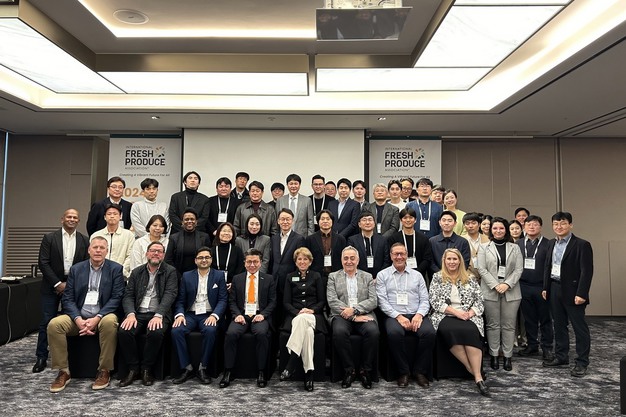The International Fresh Produce Association is deepening fresh produce trade connections to enhance opportunities for Australian and New Zealand exporters as increasingly savvy South Korean consumers seek out new lines and eating experiences.

The IFPA's Global Development Committee and East Asian Task Force conducted a fact-finding mission facilitated by Korean Business Services Inc to explore opportunities within the dynamic South Korean marketplace during a March 5-7 visit to Seoul. Activities included retail visits to Garak Market, Lotte Market and Costco Korea and a cultural excursion.
There was a strong desire from a South Korea delegation from across the supply chain for the IFPA to present a unified approach to developing global fresh produce imports including from Australasia, IPFA managing director A-NZ Ben Hoodless said.
"The visit was an exploratory first step. Continuous efforts to understand market dynamics are crucial for the success of IFPA members and to create opportunities for international fresh produce suppliers entering the South Korean market," he said.
"Domestic horticultural production in South Korea has traditionally been very important. Severe weather events in 2022 significantly impacted apple and tree crops leading to increased imports. It now relies heavily on imported food with annual imports totaling approximately $50 billion (food and agricultural products). Specifically, it imports $1.7 billion worth of fresh fruits, nuts and other processed fruit and expects a further increase in imported fresh fruits. Due to climate change and the need to diversify and satisfy a population of some 51 million that has an appetite for new, fresh, and healthy."
The United States, Spain and Mexico are South Korea's top three exporters of fruit while China, Mexico and the Netherlands are the top three exporters of vegetables.
He said Australia and New Zealand's reputation for producing clean, safe produce presented significant potential for the export of tropical and sub-tropical fruits such as mangoes and stone fruit, and vegetables such as potatoes and broccoli.

Delegates visit Garak Market including Seoul Agro-Fisheries and Food Corporation.
"A rising middle class and increasingly tech-savvy population is driving the demand for a broader array of fresh produce as well as produce that has a year-round supply or health and wellness appeal. Avocados for example – little known five years ago – have become a sensation thanks to social media influencers educating consumers about their health benefits."
He said South Korea consumers were keen to try new foods and wanted to know the origin of produce. They also demanded premium produce (such as mangoes, cherries, and table grapes) and understood the value of paying a premium.
"South Korea is positioned to take advantage of a smorgasbord of global produce offerings. It's fast emerging as an exciting market with significant potential for global fresh produce imports and specifically for Australian and New Zealand producers."
For more information:
Ben Hoodless
IFPA A-NZ
Tel: +61 408 114 971
